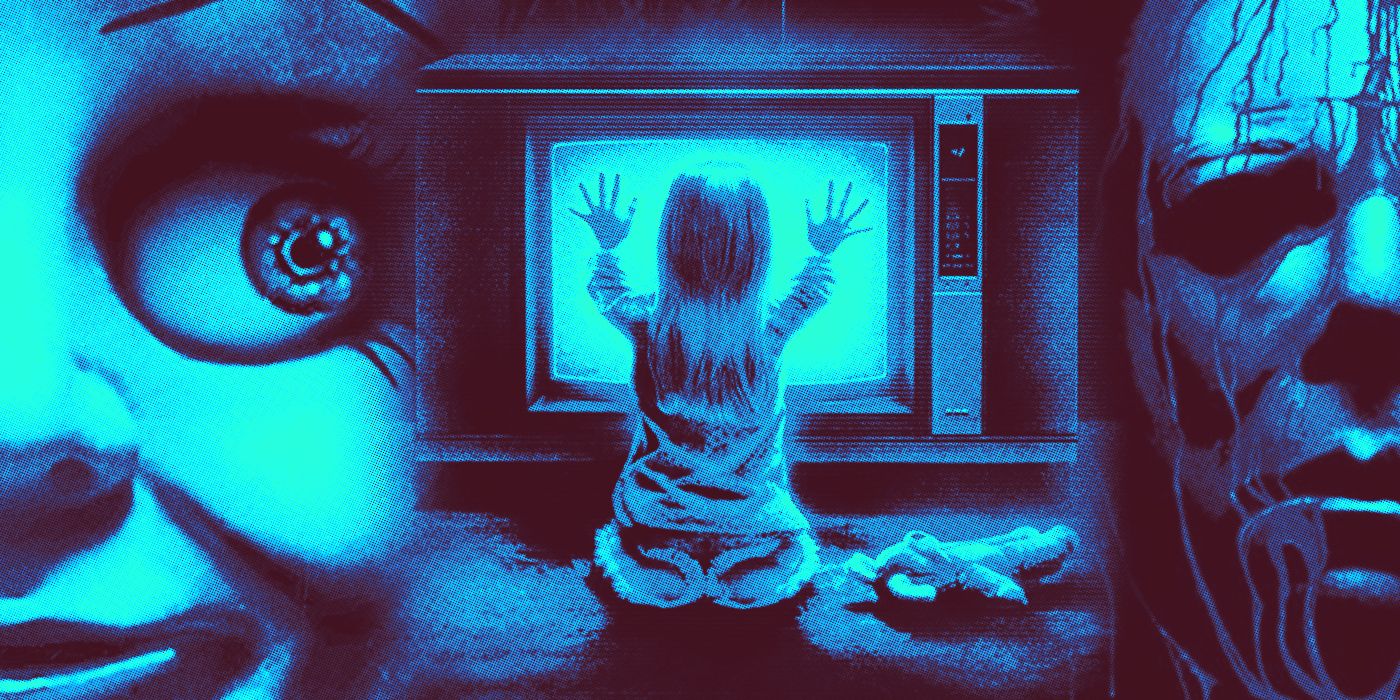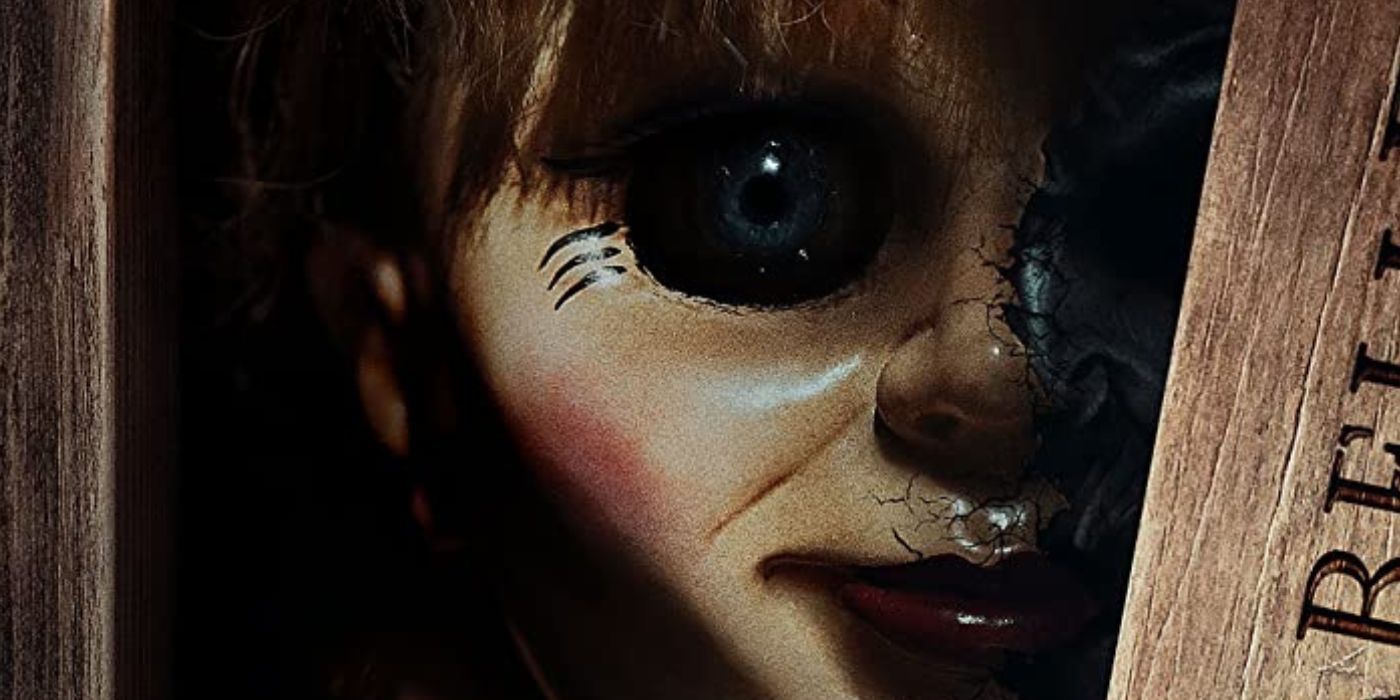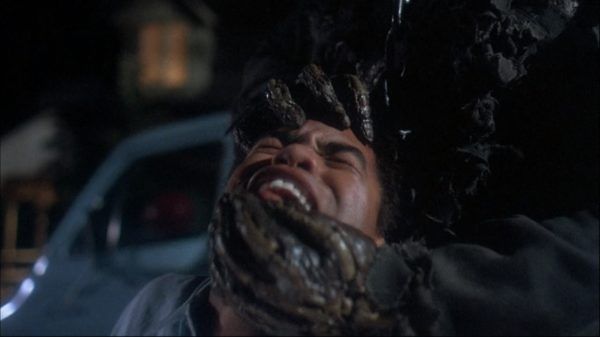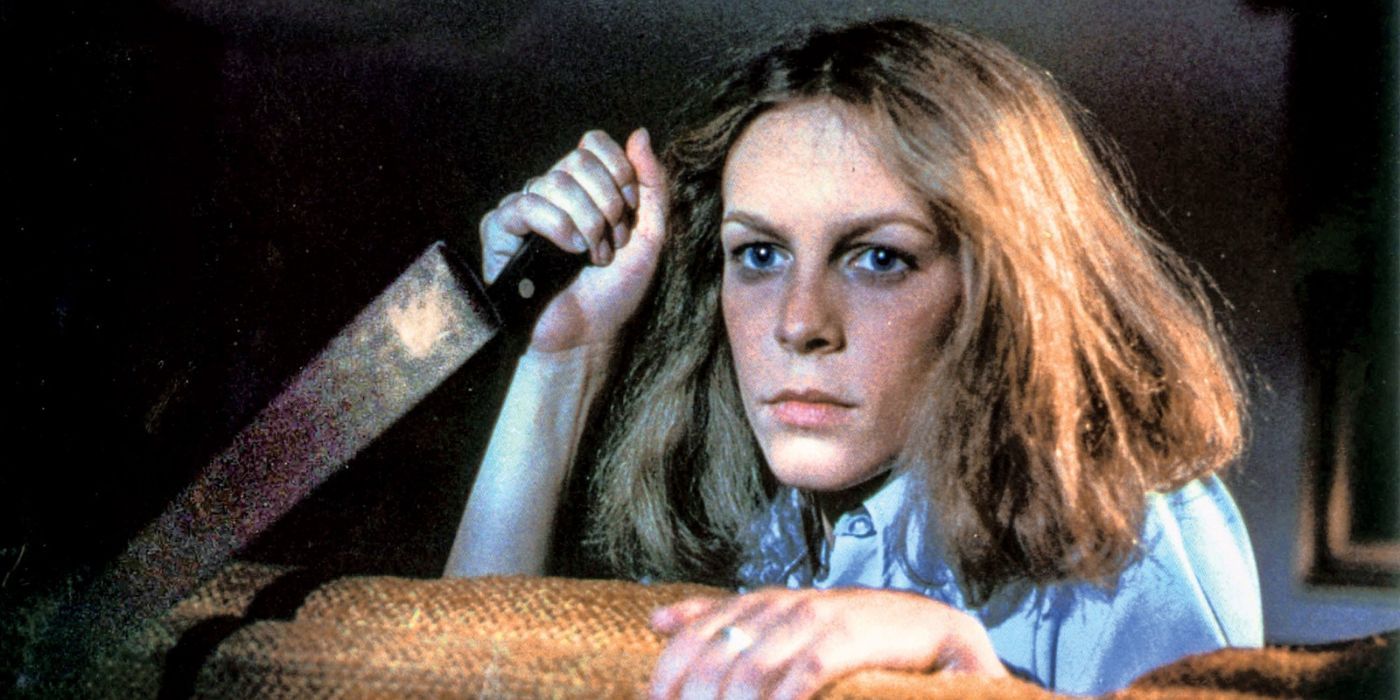Picture this, if you will. Young babysitter hears a noise in the basement. Spooked, she goes downstairs to check it out… but doesn’t turn the lights on! Aagghh!! Or, the house the family moved into has blood dripping down the walls… but they stay anyway!
These are but two examples of horror movie tropes. Nay, ridiculously daft horror movie tropes. See, a good horror movie manages to keep the viewer engaged enough that the absurdity of the actions the characters take goes by unnoticed. A bad horror film? Eye rolls and laughter. Good, bad, it doesn't really matter: horror movie tropes exist because, God forbid, if the characters actually did what made sense, there wouldn’t be a movie. Poltergeist would be over in ten minutes, as would The Amityville Horror. You would maybe be able to make the first Friday the 13th, but after that? But the fact that they're necessary doesn't mean they are any less absurd.
Like We're Really Not Going to Go Into That Room...
Take Annabelle: Creation. Twelve years after the death of their daughter, the Mullins take in Sister Charlotte (Stephanie Sigman) and six orphaned girls. There's one big stipulation: do not go into Annabelle's locked bedroom. That's it. Seriously? If you tell a child - or anyone - not to go into a room, what do they instinctively want to do? That's right, go into that room. How about a little exposition? “Hey, that room there? Don’t go into it. There’s a creepy arse demonic presence that has inhabited a doll in there.” Oh, okay – don’t go into there because otherwise my soul will be torn asunder. Got it, understood. Cue the closing credits.
'Poltergeist' Commits a Number of Horror Trope Sins
First: young Carol Anne (Heather O'Rourke) carries on a conversation with the "TV people", hidden behind a screen full of static. Weird enough, but then the house shakes, and she turns around to say, "they're here", all Village of the Damned-like. Now if you've been blessed with children, then you know that they can prattle on and on about the most inane things, like how their Roblox character is a sentient watermelon. But in horror movies, when they say something is in their room, or in their closet, or they dreamed you die the next day when errant radiation from the microwave melts your face, they're usually on to something, so maybe add a touch more urgency to what they are saying. "Who's here? They're here? We're not." Done.
But of course, the Freeling family stays. Fine. Only then, chairs somehow stack themselves, glasses break, and there's a section in the home that will pull objects, including people, across the floor. When Steve Freeling (Craig T. Nelson) comes home, mama Diane (JoBeth Williams) calls him into the kitchen. "Check this out, honeybuns," Diane says (totally paraphrased, if you couldn't tell), "this chair can move across the floor all by itself! So does our precious little daughter!" Yah, that's not normal, and it is always a precursor to something worse. Always. Movie ghosts never stick to just moving objects around. So now the Freelings have TV people in their house, and don't have to pass the salt and pepper as they pass themselves. And they stay. Why? Because the movie potentially ends in not one, but two different places within the first 20 minutes, if they were remotely normal people.
Here's Another One...Ouija Boards
As seen in Ouija and Ouija: Origin of Evil, never serve anything more than a nefarious purpose, either bringing an unwelcome spirit into the room or possessing someone in the room. And people always want to talk to deceased loved ones, like how Doris (Lulu Wilson) wants to talk to her dead father in Ouija: Origin of Evil. Ooh, it must be your father because the spirit knows his favorite number is seven. It's never the loved one. Since when has it ever been the loved one? Maybe ask the spirit for the winning $10 million dollar lottery numbers first. If it delivers, you're up a cool ten mill. If not, close it up.
Basements in General Are Overused, as Seen in 'The Conjuring'
Basements, at this point, are such an overused trope it borders on parody, even when done well, like in The Conjuring. Seriously. You hear a loud, unexplainable noise downstairs, so your first instinct is to go downstairs by yourself, without turning lights on, and without some sort of object in your hand to use as a weapon if needed? Who does that? It's never someone with the $10 million dollars you won thanks to the Ouija board. In fact, it's probably a clown. When's the last time you saw a clown on film that was fun-loving and spreading cheer? Even McDonald's ditched Ronald. If I heard a noise in the basement, threw on the lights, a baseball bat in hand, and saw some creepy-arse red nosed freak telling me, "we all float down here", I'm gone. People in horror movies? Maybe run upstairs, maybe even lock the doors, but leave? Not even on their radar.
Find the logic in this, if you can. You're out at a summer camp, when suddenly a knife-wielding maniac shows up, as in every Friday the 13th movie ever. Do you: A) run through the forest, where you are continually tripped up, or B) run down the nearby road, with less chance of falling on your butt and getting stabbed to death? Likewise, you stand in the middle of a road when a killer in a car (or a killer car, à la Christine) chases you. Do you: A) run down the middle of the road in a desperate attempt to outrun the car, or B) run through the forest where the car can't get you? If you answered A to both questions, congratulations! You are a flat-out, moronic horror movie victim, sacrificing yourself to increase the running time of your film!
'Friday the 13th Part VII: The New Blood' Offers a Split-Up Slip Up
Speaking of Friday the 13th, let's take a deeper look at one in particular, 1988's Friday the 13th Part VII: The New Blood. The Friday movies have a foundation build solidly on horror movie tropes, but in this film we have two examples of absurdity. The first is the tried and true social group representation: Slut, Jock, Nerd and Virgin, with Stoner and Telekinetic Teen thrown in for good measure. They're all out near good old Crystal Lake, celebrating Michael's (William Butler) birthday. Given Crystal Lake's rather dubious history, a normal person might look at who else is invited. If the other invitees include three of the four standard groups, you are the fourth, and unless you're the virgin of the group, stay home.
Of course no one does, which leads to the second trope, the split-up. Two characters run off to go skinny-dipping, two down. One character goes looking for another character, finds Jason's (Kane Hodder) handiwork, and becomes number three, and so on and so on, leaving only Telekinetic Teen Tina Shepard (Lar Park Lincoln) and good guy Nick (Kevin Blair). Here's an idea. How about if everyone stays together, and when Jason shows up, one member of the group might be a victim, but the others have a chance to attack and probably stop the madness, or at least escape. But no, why would you do something so decidedly smart?
The Dead Killer Isn't Dead
Then there's the trope that doesn't end the movie prematurely if movie characters had seen any horror movie ever made previously, but does stop sequelitis in its tracks: the dead killer isn't dead. Let's look at 2018's Halloween. Michael Myers (James Jude Courtney) has chopped through dozens of your neighbors, you've captured the killer in your basement, fatally stabbed him, and you set the house on fire, sending him to hell. Mission accomplished, right? As if. Dude's coming back. When don't they? Here's a crazy idea. Myers is down on the ground, supposedly dead. How about chopping him up? The odds are good there's a machete or chainsaw nearby, so slice him up, separate the pieces, and have done with it. If he still comes back, congratulate him for a job well done and give up, because s**t just got real. In this case? No Halloween Kills or Halloween Ends, which given the critical response to each may have been warmly welcomed.
Without the existence of the horror movie trope, these movies and more simply wouldn't exist, or might have to become something original instead, like Get Out. If the characters in these movies had ever seen horror movies, they would know that they're falling into a trope, which Scream so brilliantly satirizes. But most horror movie characters live in a world where there are seemingly no horror movies to be seen, and so long as they do, the painfully obvious course of action will always elude them - no matter how ridiculous and absurd those actions may be.





